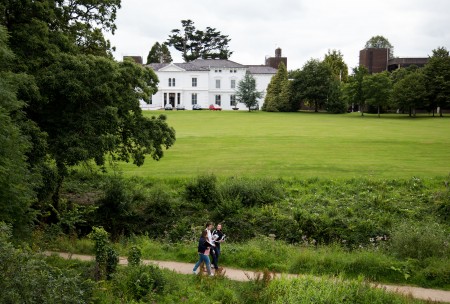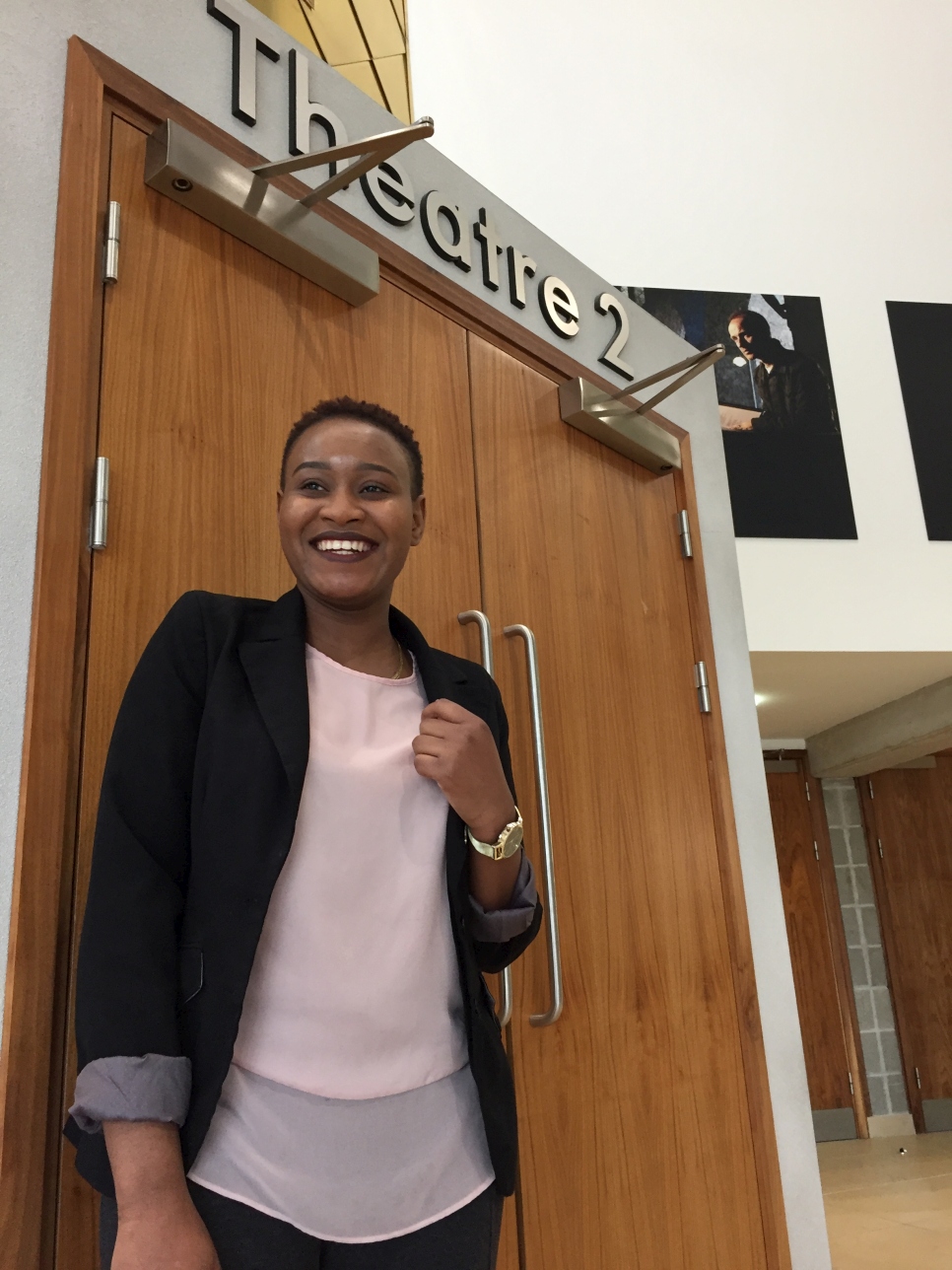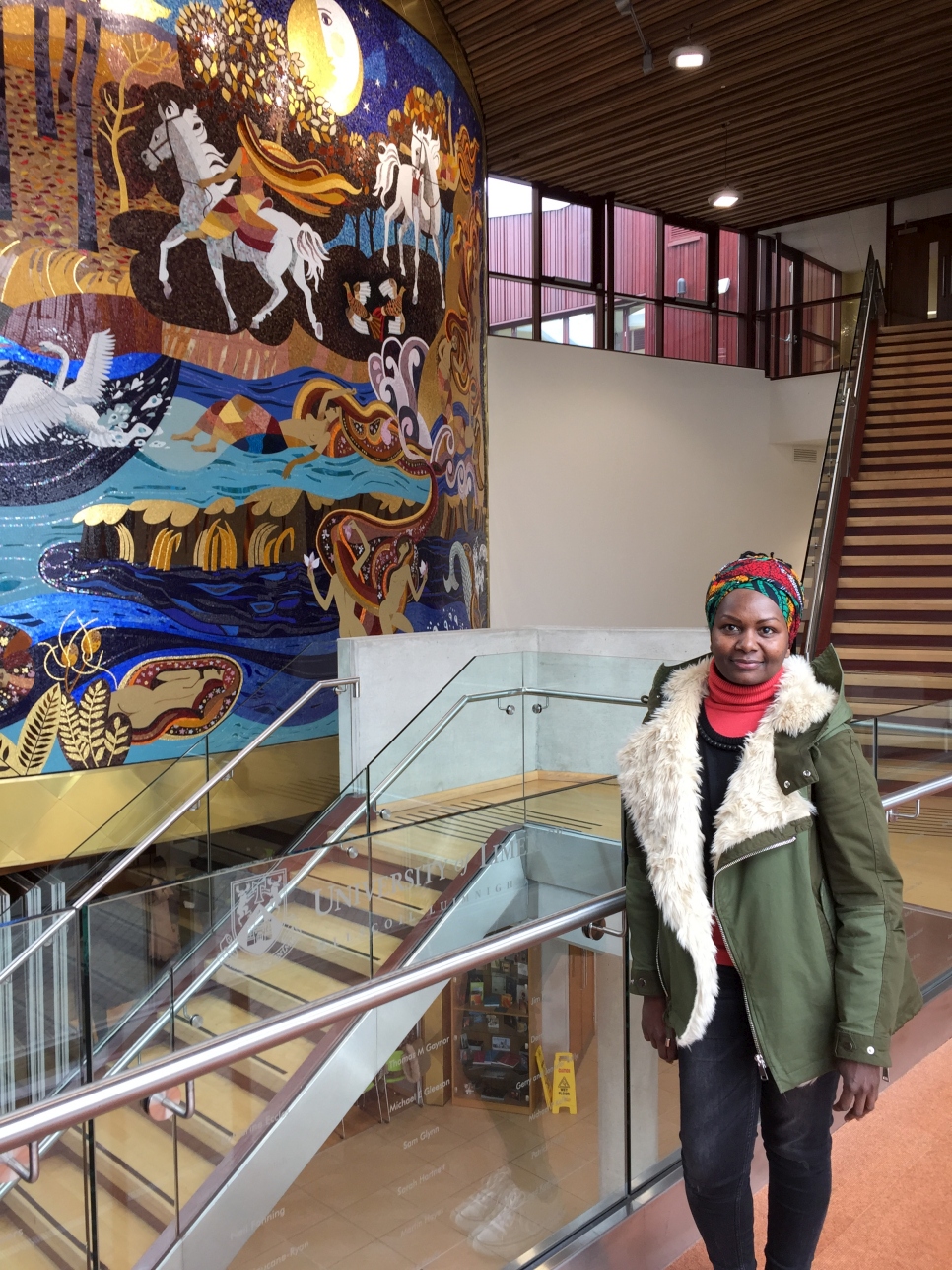Irish universities give second chance to refugee and asylum-seeker students
The University of Sanctuary programme offers scholarships to refugees and asylum-seekers so that they can continue their studies

Tife Onorihewe, a student in mental health nursing at the University of Limerick. "I don't know where I'd be right now without help from Sanctuary". © UNHCR
Professor Desmond Fitzgerald can still remember the days when Irish people were forced to leave home.
“I always remember that song, Shane McGowan had, ‘Thousands Are Sailing’. He was talking about the “land that made us refugees”, and he wasn’t talking about the 19th century. He was talking about the 1980s. There were a lot of people who had to get on a plane, with no money, kids, and a few bags and head off and if it wasn’t for the support of people in the countries that they went to they wouldn’t have survived.”
Many staff in the University of Limerick, of which he is president, went through the same process. Now they want to give something back. “I think we’re doing a small part. But I think society needs to do more.”
The University of Limerick is one of five Irish Universities designated as universities of sanctuary. An off-shoot of the volunteer led ‘Places of Sanctuary’ movement, it encourages communities to welcome refugees. Along with University College Cork, the National University of Ireland Galway, Dublin City University and University College Dublin, the University of Sanctuary Movement supports refugee and asylum-seeking students with opportunities to continue their third-level education.
Although there are no official restrictions that hinder refugees and asylum-seekers from accessing third-level education, in effect they are barred because of the high fees they must pay. Asylum-seekers must pay international fees, while refugees will not qualify for lower ‘Irish fees’ until they are resident for three years.
“Even if I had my status three years ago I don’t think I would have qualified for any grant for an educational institution,” says Sikhulekile Ruth Ndlovu.
Originally from Zimbabwe, she hopes to get on to a finance and accounting degree next year.
“I am hoping this won’t just end with me. There are so many people out there striving for better education and I am hoping that this will be a good platform for everyone.”
17 refugee and asylum-seeking students were given scholarships to the University of Limerick in September 2017. However, as part of the university’s broader access programme, UL’s support for refugee and asylum-seeker students goes back further.
Cynthia Adubango from Uganda, for example, is a third-year student studying politics and international relations. Her experience as an asylum-seeker has encouraged her to look at the broader issues of forced flight and migration, and why people flee in search for safety.
“I hope when I finish this I will work in community development or maybe peace and conflict resolution. I hope to get involved in issues connected with migration and see how we can try and help, especially around issues such as integrating asylum-seekers when they come to host countries.”
That issue of integration is at the heart of what the Sanctuary movement hopes to do, says Dr James Carr, a lecturer in Sociology at the University.
“It’s about recognizing the need and desire among all communities for integration and a shared existence” he says. The University has organised a ‘Sanctuary Week’, organising lectures, sport tournaments and music and performances that showcase refugee talents, giving people an opportunity to share “our common humanity”.
Refugee and asylum-seeker students are made to feel welcome, but they also get the opportunity to further their career ambitions, taking up studies that were interrupted when they were forced to flee.
The benefit to the students is obvious, but it extends to the wider university community as well.
“My view is everyone who could go to university should go to university” says Professor Fitzgerald.
“It increases the diversity of student’s in the institution. That’s very good for the students (as) it exposes them to other cultures.”
For example, UL has an award winning performing arts programme, he says, in which many of the students are heavily involved. With students from other cultures coming together, it introduces new ways of thinking and performance, broadening the range of what they can do.
“Everybody gains from it. Having people from a wide spectrum of cultures adds an awful lot to the institution.”




